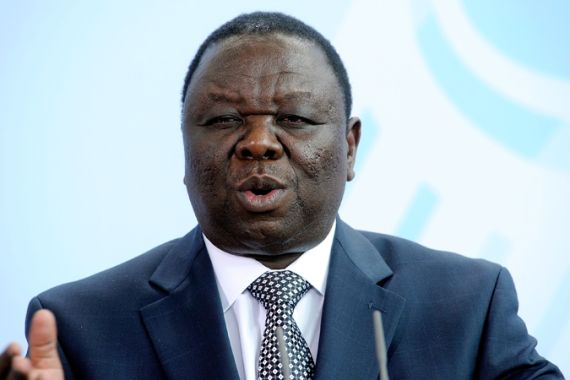Mugabe looks to Zimbabwe elections in March
Opposition condemn the timetable of referendum and poll before March 2013 as “unrealistic”.

Zimbabwe’s President Robert Mugabe has set out plans for a constitutional referendum in November and elections in March 2013, court papers reveal.
Mugabe set out his most concrete timetable to date for two votes on Thursday that are key to a bipartisan deal designed to stop Zimbabwe descending further into political violence, however the opposition have condemned the timetable as “unrealistic”.
Setting out the popular votes to be held in the next six months, Mugabe listed a “referendum, expected to take place during the first week of November”.
The two sides are unable to agree on a draft constitution, which is supposed to be in place before the new election.
The document also said Mugabe wanted to “hold the harmonised elections in the last week of March 2013,” adding: “A proclamation to this effect will be made at the appropriate time.”
The Movement for Democratic Change (MDC), led by Prime Minister Morgan Tsvangirai, backed by South African mediators, insists that a new constitution is in place before the new polls to ensure they are free and fair.
MDC spokesman Douglas Mwonzora told the AFP news agency that “the dates being proposed are clearly not feasible”.
“The date for the election, especially, is unilateral, unrealistic and has no scientific or legal basis.”
Differing views
Mwonzora added his party was more concerned about conditions under which the vote takes place rather than the date.
“For us to meet those dates, ZANU-PF has to change drastically.”
“We want elections to be held in conditions which allow the secrecy of the vote and the security of both the vote and the voter,” said Mwonzora.
After 32 years in power, 88-year-old Mugabe has seen his political star rise in recent months, as Tsvangirai, his rival has been riven with divisions and tainted by personal and political scandals.
A recent Afrobarometer poll showed ZANU-PF running neck and neck with the MDC.
As part of the pact which gave birth to the power-sharing government the parties agreed to a raft of reforms including drafting a new constitution and tinkering security, electoral and media laws.
There are still doubts about whether a new constitution, which would include term limits, will be passed.
And elections without a new constitution could prompt objections from international observers, who argue a fair vote is not possible under current laws.